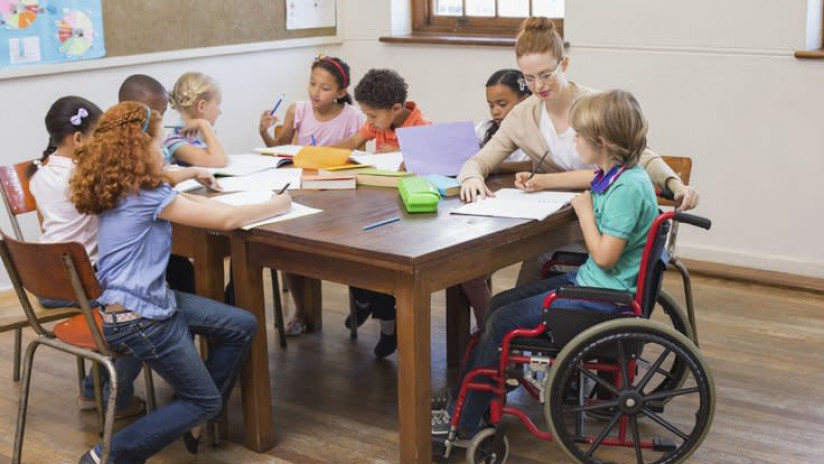The reports of various state structures show different figures of children under the age of 18 with disabilities, who are receiving allowance. According to the Statistics Committee, this number was 71934 in the beginning of 2017, while the Ministry of Education figures claim 65482 persons. While in 2005-2009 268 persons were engaged in inclusive education, in 2015-2017 only 40 pupils were engaged in inclusive education in experimental classes of pilot schools.
Within the framework of the Development Program of the Republic of Azerbaijan on Organizing of Education of Children Requiring Special Care (with disabilities) (2005-2009) 3 pilot projects were carried out through support of international and local non-governmental organizations. In connection with this in 2004-2005 14 schools and 13 pre-schools applied inclusive education.
The figures demonstrate that, 77% of children with disabilities are not engaged in inclusive education or any education at all. This is the direct violation of the right to education of these children and accountability on causes and solutions of this problem of the relevant structures responsible for the problem is very important.
Pre-school facilities and schools, where inclusive education is applied, are very small in number in comparison to a quantity of children with disabilities. Especially, parents of children with disabilities in the regions have significant problems with access to institutions, which can provide education for their children. Because of such problems parents prefer homeschooling.
According to the interviews with parents, whose children study at home, teachers do not approach homeschooling responsibly.
Other problems in this sphere are absence of special programs, textbooks, assesment methods for children getting inclusive education, lack of state sponsored centers for extra-curricular activity, absence of database on children with disabilities, projects and programs covering inclusive higher education.
Inclusive education is important for building of knowledge and skills of children and necessary for their self realization in the future. It is not accidental that, number of children with disabilities engaged in inclusive education is numerous times higher than numbers of children engaged in other forms of education.
The main principles of inclusive education are the following:
- a student staying with his family
- close cooperation with a parent
- existence of a personalized development-education plan.
The main aim of inclusive education is to integrate these children into social life by studying altogether, but applying programs of personal development and education for everyone, but adapted to the needs. Since all of these are important issues for development, self realization and future of a child, implementers of the State Program and projects shall be resolute in their will to make serious changes in this sphere.
The aim of this research is to study the general situation with inclusive education and attitude towards it in Azerbaijan, reveal problems and prepare relevant recommendations.*
